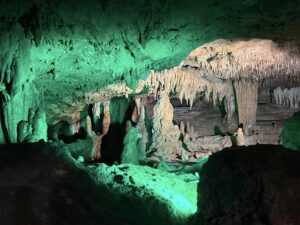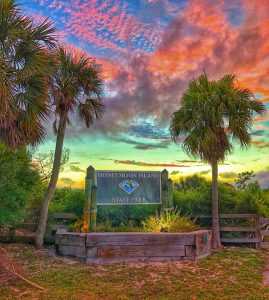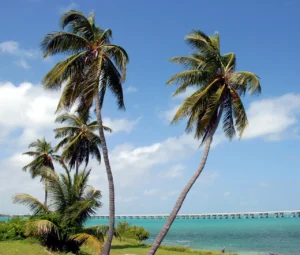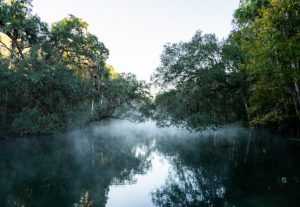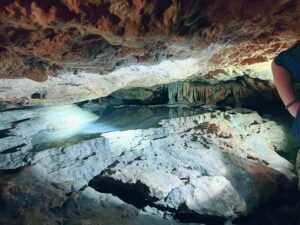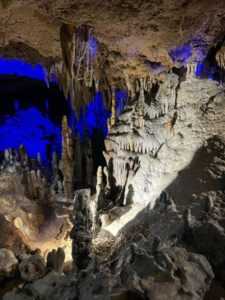Introduction
Imagine stepping into a world where time seems to stand still, a place where natural beauty and geological wonders collide in a symphony of underground marvels. Welcome to the Florida Caverns, a hidden gem in the Sunshine State. These caverns offer an incredible journey into the depths of the Earth, revealing secrets that have been millions of years in the making. This article aims to uncover the mysteries of the Florida Caverns, providing you with a comprehensive guide to exploring this fascinating subterranean world.
The Geological Formation of Florida Caverns
The Role of Water in Cave Formation
Florida Caverns were formed primarily through the action of water on limestone over millions of years. This process, known as chemical weathering, occurs when slightly acidic rainwater seeps into the ground, dissolving the limestone and creating hollow spaces that eventually form caves.
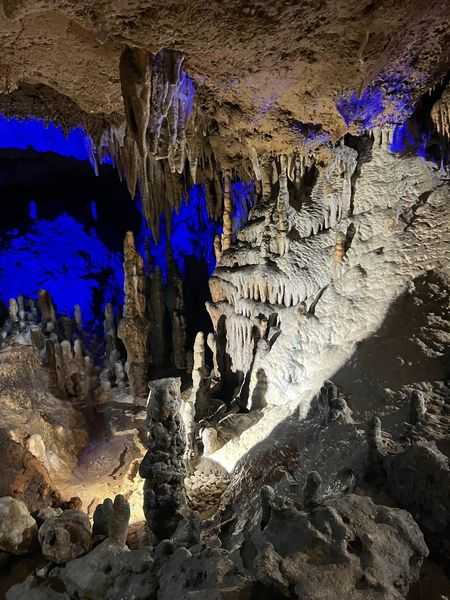
Types of Rock Found in the Caverns
The caverns are predominantly composed of limestone, a sedimentary rock rich in calcium carbonate. This type of rock is ideal for cave formation due to its solubility in acidic water. Additionally, traces of dolomite and other minerals can be found within the caverns, adding to their geological diversity.
Timeline of Formation
The formation of the Florida Caverns began around 38 million years ago during the Eocene epoch. Over time, the relentless action of water expanded the initial fissures and cracks, gradually sculpting the vast network of chambers and passageways that visitors can explore today.
Exploring Florida Caverns State Park
Location and Accessibility
Florida Caverns State Park is located near Marianna in the Florida Panhandle. It is easily accessible by car, with ample parking available for visitors. The park is well-signposted, making it easy to find your way to the caverns.
Park Amenities and Facilities
The park offers a range of amenities, including picnic areas, restrooms, and a visitor center where you can learn more about the caverns’ history and geology. There are also gift shops where you can purchase souvenirs and refreshments.
Guided Tours and Self-Guided Exploration
One of the highlights of visiting Florida Caverns State Park is the guided tours, which provide an in-depth look at the caverns’ unique features. For those who prefer to explore at their own pace, self-guided tours are also available, allowing for a more personal experience.
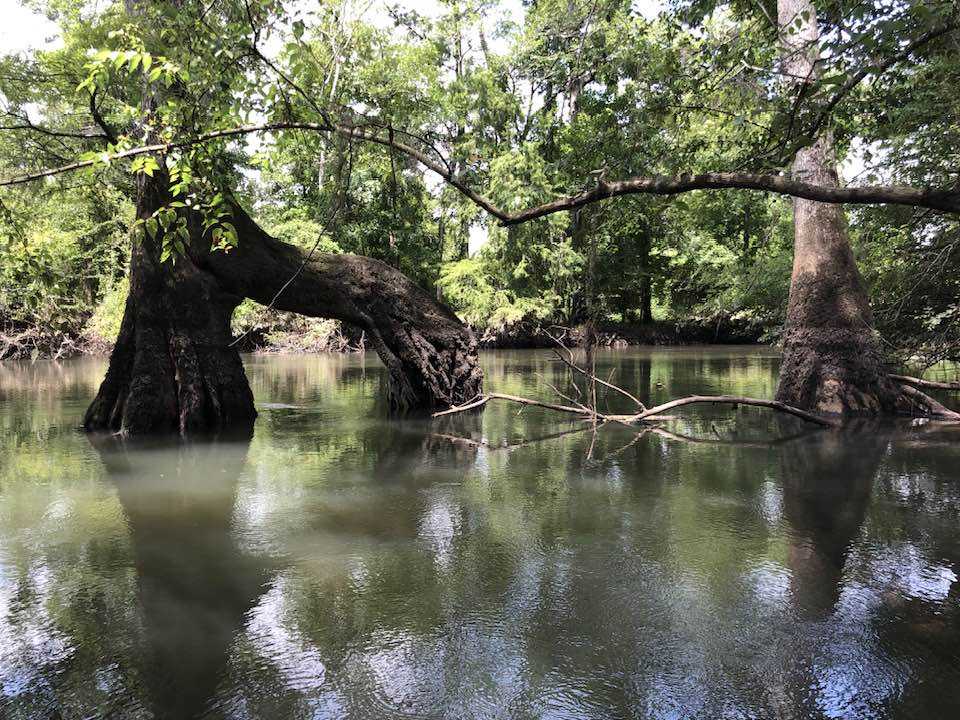
Unique Features of the Caverns
Stalactites and Stalagmites
The caverns are adorned with stunning stalactites and stalagmites, which are formed by the slow deposition of minerals from dripping water. These formations create breathtaking natural sculptures that captivate the imagination.
Flowstones and Draperies
Flowstones and draperies add to the visual appeal of the caverns. Flowstones are formed by the continuous flow of mineral-rich water over surfaces, while draperies, also known as curtains, are thin sheets of minerals that hang from the ceiling, resembling delicate fabric.
Underground Lakes and Rivers
Adding to the caverns’ allure are the underground lakes and rivers. These bodies of water are crystal clear, reflecting the surrounding rock formations and enhancing the magical atmosphere of the caverns.
The Ecosystem Within the Caverns
Flora and Fauna
Despite the seemingly inhospitable environment, the caverns support a variety of life forms. From delicate fungi to resilient insects, the ecosystem within the caverns is a testament to nature’s adaptability.
Adaptations of Cave-Dwelling Species
Cave-dwelling species have developed unique adaptations to survive in the dark, nutrient-scarce environment. Many of these species have reduced or completely lost their eyesight, relying instead on other senses to navigate and find food.
Importance of Biodiversity
The biodiversity within the caverns is crucial for maintaining ecological balance. Each species plays a role in the complex web of life, contributing to the overall health of the ecosystem.
Historical Significance of Florida Caverns
Native American History
The caverns have a rich history, with evidence of human habitation dating back thousands of years. Native American tribes, such as the Apalachee, used the caverns for shelter and ceremonies, leaving behind artifacts that provide insight into their way of life.
European Exploration and Settlement
During the era of European exploration, the caverns were rediscovered and documented by settlers. These early explorers were fascinated by the caverns’ beauty and potential for resource extraction, leading to further exploration and mapping.
Modern-Day Preservation Efforts
Today, Florida Caverns State Park is dedicated to preserving the caverns and educating the public about their importance. Conservation efforts focus on protecting the delicate formations and ensuring the caverns remain a natural wonder for future generations to enjoy.
Recreational Activities in Florida Caverns State Park
Hiking and Biking Trails
The park offers a variety of hiking and biking trails that wind through the picturesque landscape. These trails provide opportunities to experience the beauty of the park above ground, with scenic views and diverse flora and fauna.
Camping and Picnicking
For those looking to extend their visit, the park offers camping facilities with sites for tents and RVs. Picnic areas are also available, providing a perfect spot for a relaxing meal surrounded by nature.
Canoeing and Kayaking
The nearby Chipola River offers excellent opportunities for canoeing and kayaking. Paddling along the river provides a unique perspective of the park and its surroundings, with the chance to spot wildlife and enjoy the serene environment.
Educational Programs and Events
School Field Trips and Programs
Florida Caverns State Park offers educational programs tailored for school groups. These programs provide students with hands-on learning experiences, fostering a deeper understanding of geology, ecology, and history.
Special Events and Festivals
Throughout the year, the park hosts a variety of special events and festivals. These events celebrate the natural and cultural heritage of the caverns, offering fun and educational activities for visitors of all ages.
Workshops and Seminars
Workshops and seminars are available for those interested in learning more about the caverns and their conservation. These sessions are led by experts and cover a range of topics, from cave photography to ecological preservation.
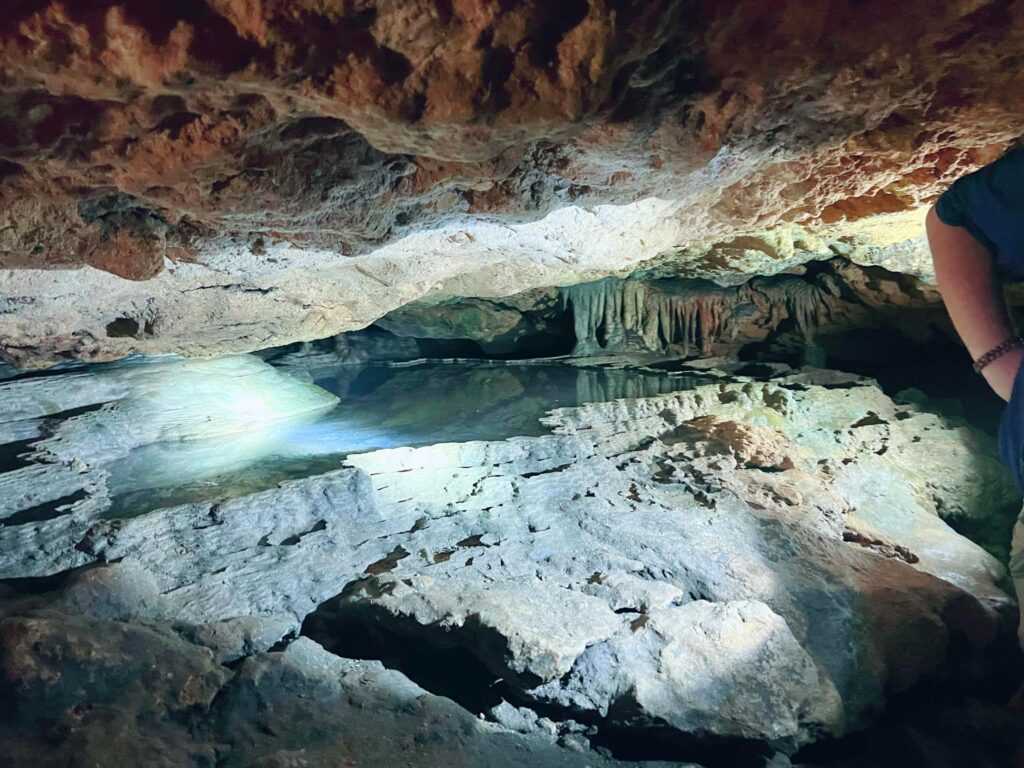
Conservation Efforts and Challenges
Protecting the Caverns from Damage
Conservation efforts are crucial to preserving the caverns’ natural beauty. Measures include limiting visitor numbers, installing protective barriers, and conducting regular maintenance to prevent damage to the delicate formations.
Balancing Tourism and Preservation
Balancing tourism with preservation is a key challenge. While the caverns attract thousands of visitors each year, it is essential to ensure that their presence does not harm the environment. Strategies include sustainable tourism practices and visitor education.
Volunteer Opportunities
Volunteers play a vital role in conservation efforts. From guiding tours to assisting with maintenance, volunteers help ensure that the caverns remain a pristine natural wonder. Opportunities are available for individuals and groups interested in contributing to the park’s preservation.
Photography Tips for Capturing the Caverns
Best Times to Visit for Photography
The best time to photograph the caverns is during the early morning or late afternoon when natural light is softer and more diffused. These times provide optimal lighting conditions for capturing the caverns’ intricate details.
Recommended Equipment
A good camera with manual settings is essential for cave photography. Tripods are also recommended to stabilize the camera during long exposure shots. Additionally, a wide-angle lens can help capture the vastness of the caverns.
Techniques for Low-Light Photography
Low-light photography techniques are crucial for capturing the caverns’ beauty. Using a slow shutter speed and a high ISO setting can help achieve clear, well-lit photos. It’s also important to experiment with different angles and perspectives to highlight the caverns’ unique features.
Visitor Tips for a Safe and Enjoyable Experience
What to Bring
When visiting the caverns, it’s important to bring appropriate clothing and footwear. The temperature inside the caverns is cooler than outside, so a light jacket is recommended. Comfortable, non-slip shoes are essential for navigating the uneven terrain.
Safety Precautions
Safety is a top priority when exploring the caverns. Visitors should stay on designated paths, avoid touching the formations, and follow all guidelines provided by the park staff. It’s also important to stay hydrated and be mindful of any physical limitations.
Accessibility Information
The park strives to make the caverns accessible to all visitors. While some areas may be challenging for those with mobility issues, there are designated accessible routes and facilities to accommodate visitors with disabilities.
Local Legends and Folklore
Myths and Stories Surrounding the Caverns
The Florida Caverns are steeped in local legends and folklore. Stories of hidden treasures, mysterious creatures, and ancient rituals add to the mystique of the caverns, captivating the imagination of visitors.
Paranormal Tales
Tales of paranormal activity are also common, with some visitors reporting eerie sounds and unexplained phenomena. These stories, whether true or not, contribute to the caverns’ allure and sense of mystery.
Influence on Local Culture
The caverns have had a significant impact on local culture, inspiring art, literature, and traditions. They are a source of pride for the community and a symbol of the region’s rich natural heritage.
Impact on Local Economy
Tourism Revenue
Tourism to the Florida Caverns generates significant revenue for the local economy. Visitors spend money on lodging, dining, and other services, providing a vital source of income for the community.
Job Creation
The caverns also create jobs, both directly and indirectly. Park staff, tour guides, and local businesses all benefit from the influx of visitors, contributing to economic stability and growth.
Supporting Local Businesses
Local businesses, from restaurants to souvenir shops, thrive on the tourism generated by the caverns. This support helps sustain the community and ensures that the benefits of tourism are widely distributed.
Comparing Florida Caverns to Other U.S. Caverns
Unique Aspects of Florida Caverns
Florida Caverns stand out for their unique geological features, including the presence of underground rivers and lakes. The combination of water and rock formations creates a one-of-a-kind subterranean landscape.
Similarities and Differences with Other Caves
While there are similarities between Florida Caverns and other U.S. caves, such as the presence of stalactites and stalagmites, each cave has its own distinct characteristics. Comparing these features helps highlight the uniqueness of each site.
Must-Visit Caverns Across the U.S.
Other notable caverns in the U.S. include Carlsbad Caverns in New Mexico, Mammoth Cave in Kentucky, and Luray Caverns in Virginia. Each of these caverns offers a unique experience, making them must-visit destinations for cave enthusiasts.
Conclusion
The Florida Caverns are a natural wonder that offers a glimpse into the Earth’s hidden depths. From their stunning geological formations to their rich history and diverse ecosystem, the caverns provide a fascinating and unforgettable experience. Whether you’re a seasoned explorer or a curious traveler, a visit to the Florida Caverns is a journey worth taking. So pack your bags, bring your sense of adventure, and prepare to uncover the mysteries of Florida Caverns.
FAQs
The best time to visit is during the cooler months of spring and fall when temperatures are more comfortable for outdoor activities.
Yes, the caverns are suitable for children. However, parents should ensure that young children are supervised at all times and able to navigate the terrain safely.
A typical guided tour of the caverns lasts about 45 minutes to an hour, providing ample time to explore and learn about the unique features.
Yes, photography is allowed inside the caverns. Visitors are encouraged to capture the beauty of the formations, but should avoid using flash to protect the delicate environment.
While the caverns are accessible to most visitors, those with certain health conditions or mobility issues should consult with park staff to ensure a safe and enjoyable experience.

